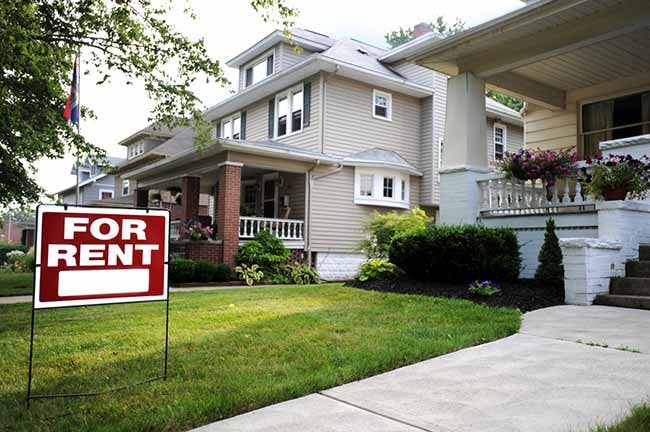
Anyone reading a list of the richest people in America can’t miss the fact that a good number of those names made their fortunes by investing in commercial real estate.
You don’t have to dream of rubbing elbows with members of the 10-figure net-worth club to enjoy the many benefits of owning income-generating rental properties. Rental properties can provide a host of tax benefits, steady income, portfolio diversification, and the opportunity to increase your total net worth through asset appreciation.
Let’s break down each of those categories, as well as examine some of the potential pitfalls that may come with owning investment real estate.
4 Benefits of Owning A Rental Property
Owning rental real estate has proven to be a sound investment for millions of Main Street investors, but it also can require a tremendous amount of work. In addition to ongoing landlord duties for active real estate investments, you’ll also have to educate yourself on market trends and demographics, asset types and classes, property valuations, investment horizon, cash flows and leverage, and a whole lot of additional metrics in order to make informed investment decisions.
Once you’ve gotten all those important pieces assembled and you are ready to put the board in play, here are some of the benefits you may potentially enjoy as the owner of a rental property:
- Tax deductions. Depreciation is one of the most important tax deductions for real estate investors. This tax treatment allows you to deduct a portion of the cost of acquiring, maintaining, and operating a rental property each year. Residential properties can be depreciated over their useful lifespan of 27.5 years (3.636%), while commercial properties can be deprecated over their useful life of 39 years. Depreciation on commercial properties can be quite complex, so make sure you engage your CPA to help out.
Other important tax deductions you may take on rental properties include property taxes, insurance, administrative, legal and marketing expenses, maintenance costs, and certain operating expenses.
- Recurring rental income. Real property investors often enjoy steady cash flows derived from monthly lease or rental agreement payments. You’ll have to balance your asset’s cash flows against the property’s mortgage note and ongoing operating expenses, though. Cash flows can increase over time as you reduce the amount of your mortgage note.
- Long-term capital appreciation. Investors with well-positioned assets may realize significant asset appreciation on properties with long-term investment horizons. According to CEIC Data, home prices in the U.S. have exceeded 5 percent year-over-year growth over the last decade. Favorable interest rates led to skyrocketing valuations during the pandemic, and although interest rates have increased significantly since mid-2020, causing home prices to cool, home valuations still topped 8.7 percent year-over-year growth at the end of 2022.1
Appreciation on commercial properties, meanwhile, can vary greatly depending on asset class, location, investor and market demand by product type, asset age, state of regional and local economies, and more. However, annual commercial property appreciation often averages between 4 and 6 percent.2
- Portfolio diversification. There are many ways owning a rental property can potentially lead to greater portfolio diversification. Since real estate has an inverse relationship with public equities markets, bear stock market runs may not directly impact your real property investments and could help lower your overall risk profile.
You also can diversify your investment portfolio by purchasing rental properties in different geographical regions, as well as by property type and asset class. Lastly, returns generated from owning and divesting investment real estate may lead to greater overall yield from your investment portfolio, or it can help balance out the negative effects of underperforming investments.
Potential Pitfalls of Owning a Rental Property
We’ve highlighted some of the primary benefits associated with owning an investment property. A few of the pitfalls that can come with owning a rental property include illiquidity, shifting neighborhood demographics that can lead to tenant vacancy, expensive maintenance and upkeep costs on aging assets, unfavorable changes to interest rates or federal/regional tax codes, and the ongoing responsibilities of being a landlord for actively managed rental properties.
Putting it all Together
Owning an investment property has been beneficial to millions of Main Street investors. There are around 20 million rental properties in the U.S., and roughly 70 percent of them are owned by solo investors, the U.S. Census Bureau reports.3
Having a rental property in your investment portfolio can bring about some significant financial and taxation benefits. However, these perks can be hard to quantify since the various classes of commercial and residential real estate perform much differently in regard to risk, yield, appreciation, and location. Taking all the various factors mentioned here and others into consideration prior to purchasing a rental property may require you to perform lengthy due diligence and seek expert insight.
1United States House Prices Growth, CEIC, https://www.ceicdata.com/en/indicator/united-states/house-prices-growth
2Appreciation of Commercial Property, Hecht Group, https://fnrpusa.com/blog/commercial-investing-statistics/
3Rental Housing Finance Survey, U.S. Census Bureau, https://www.census.gov/programs-surveys/rhfs.html
This material is for general information and educational purposes only. Information is based on data gathered from what we believe are reliable sources. It is not guaranteed as to accuracy, does not purport to be complete and is not intended to be used as a primary basis for investment decisions. It should also not be construed as advice meeting the particular investment needs of any investor.
Realized does not provide tax or legal advice. This material is not a substitute for seeking the advice of a qualified professional for your individual situation.



